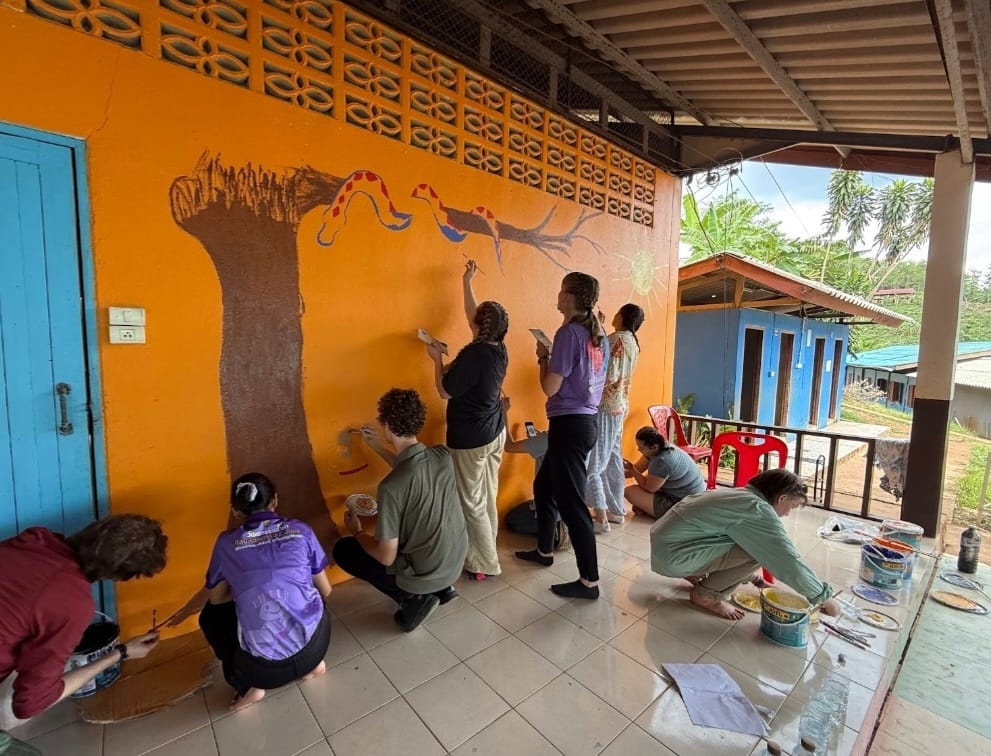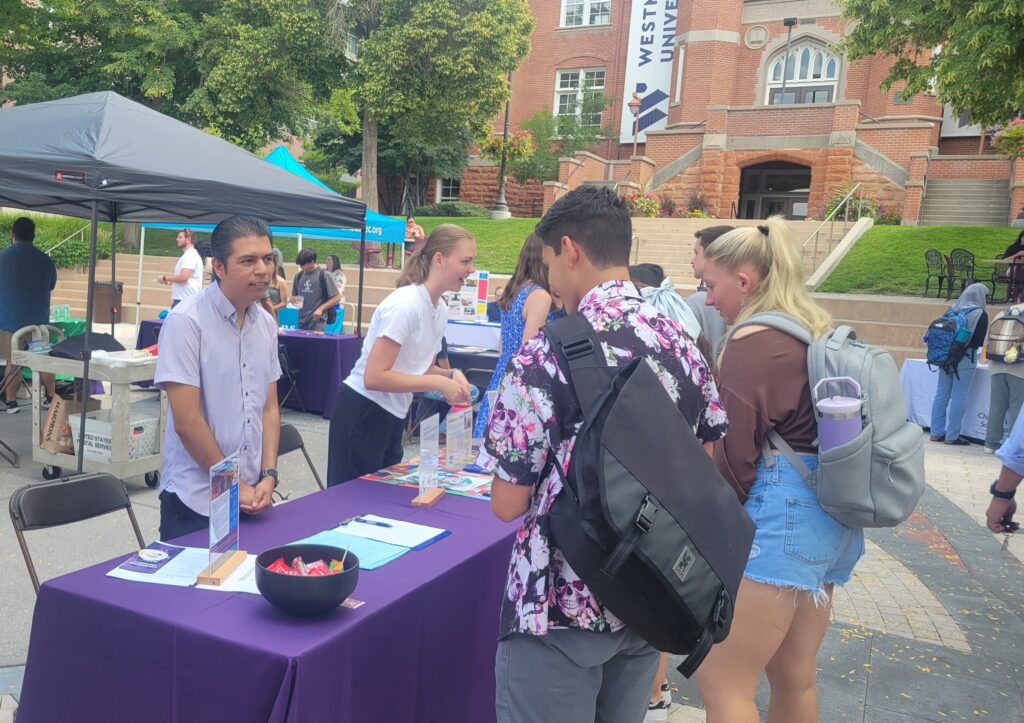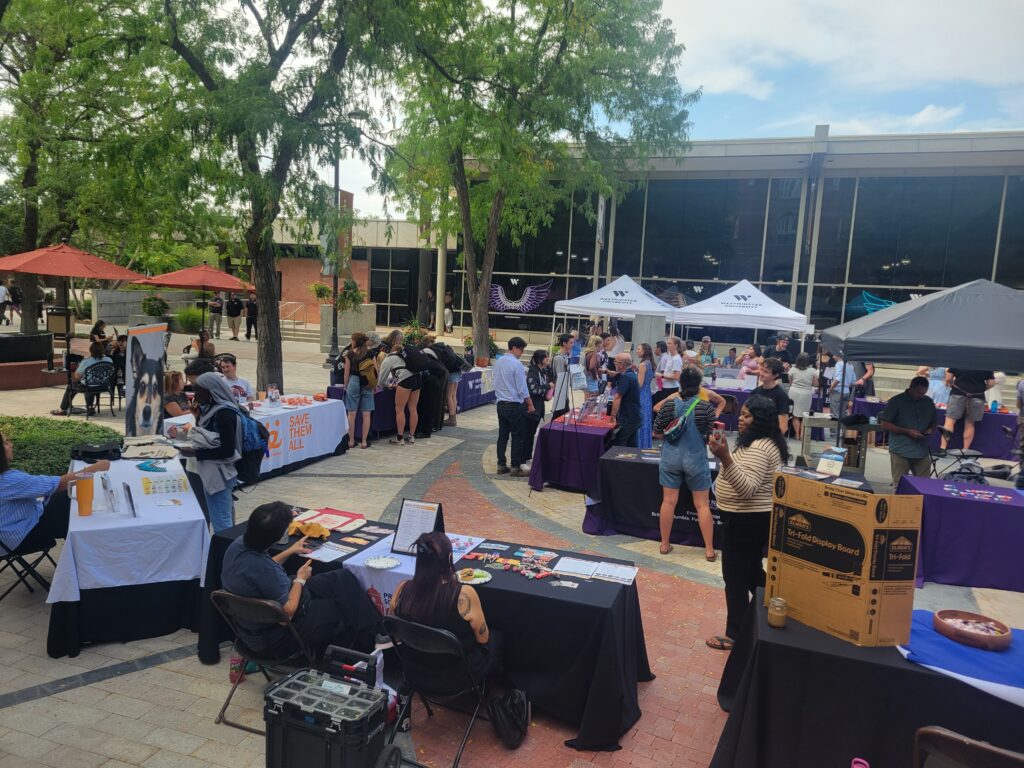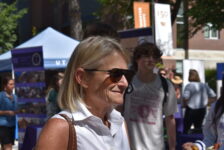An opportunity offered to students at many universities is to study abroad and travel during their studies, but a small percentage of students in the U.S. take advantage of this opportunity although the interest has been significantly growing.
During the 2022-23 academic year, 49% more students reported to have studied abroad, according to NAFSA, The Association of International Educators. This increase in global interest reflects students’ desire to connect with the rest of the world.
May Term Study Experience to Thailand
Izabelle LaRocco, a sophomore marketing major, went to Thailand for a May Term trip this past summer, which helped change her perspective of herself and the world.
“I had actually always wanted to go somewhere like Thailand,” said LaRocco, “I’ve been in the U.S. my whole life, so it was nice to do something different.”
A May Term trip is a different experience than a typical study abroad. Rather than taking classes at a local university, students earn college credit by participating in the various volunteer activities and local exploration to learn about the culture directly. For LaRocco, this meant exploring various markets, riding tuk-tuks–bicycle-led taxis–between destinations, and visiting local schools.
“You kind of have to be in charge of yourself,” said LaRocco. “And it forces you to grow up a little bit. I feel like a lot of us just live in a bubble, like, this is my life, this is what I experience. And getting to experience something so new really opens your eyes.”

An aspect of studying abroad for students is gaining deeper insight about their academic or career goals. For LaRocco, her May Term experience and working with locals changed her mind about where she wants to go after college.
“I realized that I wanted a job that can make it so I could travel,” said LaRocco. “I also realized that I kind of like the nonprofit side of things and doing stuff for smaller areas. So I think that would go better for me as far as marketing goes, where I want to work with a small company and feel like a family.”
Isabel Crofts, a sophomore political science major, also went on this May Term trip for the second time.
“I decided to go to Thailand again this past May because I fell in love with Thailand the first time I went and wanted to go back,” Crofts said. “The people, the food, the stunning landscapes, and all the opportunities to serve sold me again.”
Crofts said that it is much easier and cheaper to travel abroad through the school and students learn so much from it.
“Traveling abroad changes your perspective for the better and makes you a more cultured and informed citizen of the world,” said Crofts. “I’ve been blessed to have many opportunities to travel abroad and it has helped me pick a direction in my life, meet lifelong friends, taught me new languages, and made me a happier person.”
The May Term experience is an opportunity granted to all students, not just those in the Honors College.
“The May Term trip is an opportunity for students to take what they learned in the context of the classroom, take it outside, and apply it to our communities,” said José Hernandez Zamudio, the assistant dean of the Honors College. “There’s a plethora of things that we learn in the classroom, but when you’re actually out in the field, and seeing how you can touch the communities, it’s a different learning opportunity for our students.”

Study Abroad to Argentina
In Fall semester 2024, Alicia Mache, a senior business information systems major, studied abroad in Argentina. Her experience was different from LaRocco and Crofts. She took both Spanish and English classes at the Universidad del Salvador in Buenos Aires, took weekend trips to places like Patagonia, and enjoyed the local night life.
“I just wanted to, first of all, get better at Spanish, which is kind of why I chose Argentina,” said Mache. “And I also just wanted to experience something that I was a little bit uncomfortable with because I’d never been to South America. So I just wanted a little bit of a challenge.”
Studying abroad allows students to immerse themselves and learn about the culture there directly through their day-to-day life.
“It really made me slow down a little bit because they’re so mellow with their timing and a lot of things besides appointments in my class,” said Mache, when describing what it was like to navigate Argentinian culture. “Even like an hour late is chill and it was really just interesting to see how that played out. I feel like I’m such a go, go, go person, so sometimes we’ll just be like, okay it’s fine, we’ll just be late.”
To navigate a new life for a semester means many challenges with the language and university logistical differences.
“At the beginning, the language barrier [was challenging] because they speak in such a different Spanish accent,” said Mache. “And then the university, it was a little confusing, like signing up for classes and how they transfer here. So that was a little bit of a challenge, but then it worked out.”
For students on the fence about studying abroad, the applications, logistics, and challenges can be overwhelming. Mache encourages students to take things a step at a time.
“I feel like it’s more accessible than people think,” said Mache. “There’s a lot of steps until you go abroad and it may seem like it’s all this work, but they’re really not hard steps. You just gotta apply, talk to people about it, get informed, and then, you’re already on your way.”

A common misconception that students have that prevents them from considering a study abroad are financial and scheduling difficulties. The Global Engagement Office on Westminster campus strives to help eliminate many of these challenges.
“I think study abroad is one of the best experiences you can have in university,” said Sara Demko, the assistant provost for global learning at Westminster. “And there are a lot of flexible options that we can work with you.”
Some of these options include study abroad experiences that can range from 10 days to a couple of weeks. There are also exchange programs where you can switch places with a student in another country while paying the tuition to Westminster.
This year, the incoming first year undergraduate class will have an opportunity to have a week-long study abroad experience in their sophomore year, completely covered through a sponsorship.
“We live in a very interconnected world,” said Demko. “So learning about people’s different backgrounds and experiences makes you a more compassionate person. I think that’s the goal of a Western education: to create globally minded citizens.”









